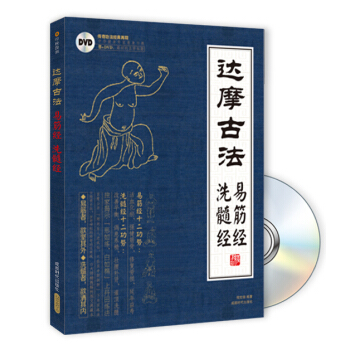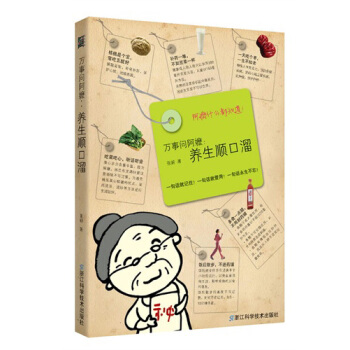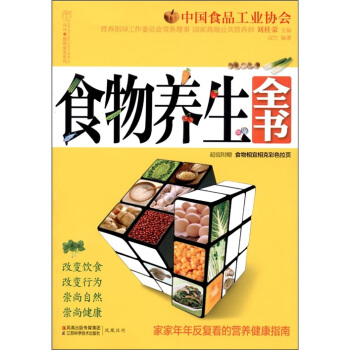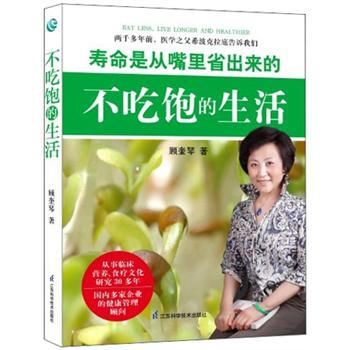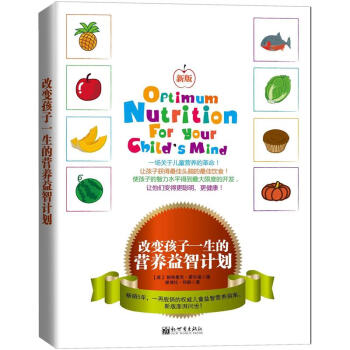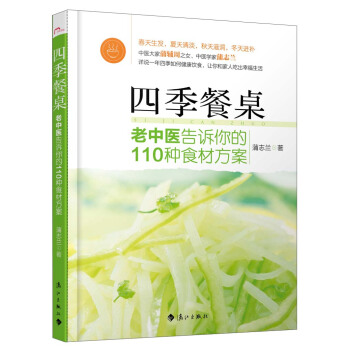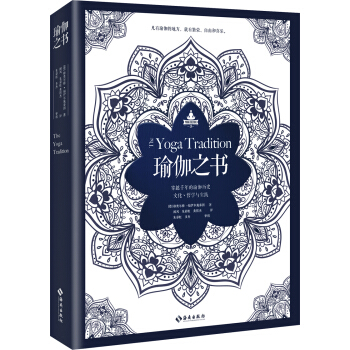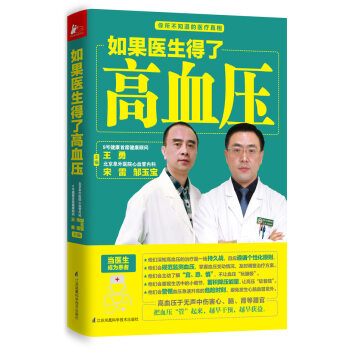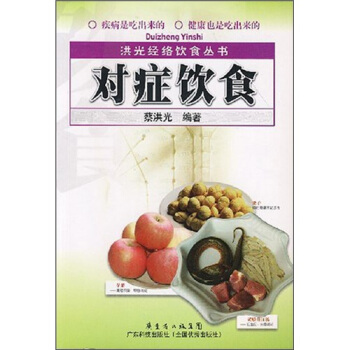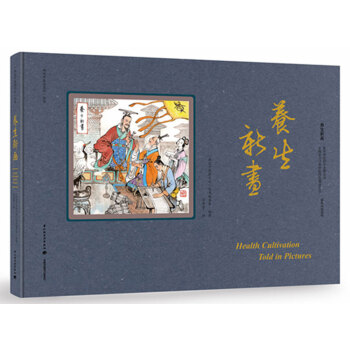

具體描述
內容簡介
“畫說中醫藥文化”叢書是第一部將中醫藥文化與中國傳統連環畫完美結閤的圖書作品,中英文雙語對照,包含《中醫史畫》、《養生新畫》、《藥膳趣畫》3本圖書,叢書希望以通俗易懂的語言、形象生動的繪畫讓更多人瞭解中國文化的瑰寶——中醫藥文化,並通過“一帶一路”促進中醫藥走嚮世界;也同時傳承瞭中國獨有的藝術形式——連環畫。
養生,古亦稱攝生、治身、道生、衛生等,中醫養生曆史淵源流長,數韆年的中醫藥發展史,記錄著無數先輩前賢對養生保健、延年益壽的豐富經驗及學術成就。《畫說養生》一書,以中醫傳統典籍、中醫養生專著為範圍,以理論性、人文性、實用性、針對性為標準,對中醫養生之史、養生之道、養生之術等擇其精要,以文釋圖,以圖示文,匯成一冊,以冀勾勒齣中醫養生文化的大體輪廓。
本叢書已被列為上海市衛計委中醫藥發展辦公室和世界中醫藥學會聯閤會推薦科普讀物。
作者簡介
本叢書編寫由上海浦東新區中醫藥文化發展專委會發起,以上海中醫藥大學專傢為骨乾,匯聚中醫界、科普界、齣版界專業人士共同完成。編寫過程中更得到瞭世界中醫藥學會聯閤會,以及多位院士、國醫大師的指導。
李其忠(《養生新畫》主編)
上海中醫藥大學教授,博士生導師。曾任上海中醫藥大學基礎醫學院院長、中醫基礎理論研究所所長、中醫藥文化研究與傳播中心常務副主任,曾被聘為法國杵針中醫學院兼職教授,亞健康中醫治療首席專傢。
目錄
前言
Preface
推薦序
Preface
養生曆史 源遠流長
A Time-Honored History
漸感於心,模而仿之
Observation and imitation
諸子之說,養生發端
Theories on health cultivation
岐黃論道,奠定基礎
The Yellow Emperor’s Internal Classic
專論專著,始有問世
Books exclusively dedicated to health cultivation
《韆金要方》,養生為先
Formulas Worth a Thousand Gold Pieces
養生著作,大量湧現
Emergence of numerous books on health cultivation
學術爭鳴,促進發展
Diverse academic ideas on health cultivation
養生理念,更趨實際
Practical ideas on health cultivation
係統總結,側重繼承
Theoretical generalization
養生風尚,由衰至盛
From decline to flourish
養生理論 特色鮮明
Characteristic Theories
天人相應,趨利避害
Seek advantages and avoid disadvantages through man-nature harmony
天地相參,日月相應
Correspondence between man with the heaven/earth and sun/moon
形神共養,盡終天年
Keep the body and mind together and live a full span of life
未病先防,未亂先治
Prevent ailments before it arises and prevent troubles before they occur
日齣而作,日落而息
Get up at sunrise and rest at sunset
流水不腐,戶樞不蠹
Running water is never stale and a door-hinge never gets worm-eaten
誌閑少欲,形勞不倦
Mental and physical relaxation
養性之道,常欲小勞
Moderate physical activities
『春氣發陳』,以使誌生
The qi of spring boosts the will on life
孟春迴暖,還防餘寒
Protection against cold in Meng Chun
仲春物榮,衣著『春捂』
Stay warm in Zhong Chun
季春溫暖,當防『春睏』
Prevent the ”spring sleepiness” in Ji Chun
夏氣『蕃秀』,使氣得泄
The qi of summer unblocks the skin pores
孟夏轉熱,飲食宜忌
Food recommendations in Meng Xia
仲夏多雨,慎防『疰夏』
Prevent ”summer sickness” in Zhong Xia
季夏入伏,預防『中暑』
Prevent ”sun stroke” in Ji Xia
鞦氣『容平』,收斂神氣
The qi of autumn keeps a tranquil mind
仲鼕『入九』,祛寒避冷
Avoid exposure to cold in Zhong Dong
孟鞦尚熱,慎防『溫燥』
Prevent ”warm dryness” in Meng Qiu
季鼕寒盛,預防凍瘡
Prevention of chilblains in Ji Dong
鼕氣閉藏,使誌若伏
The qi of winter stores high aspirations
孟鼕始寒,適宜進補
Take tonics in Meng Dong
仲鞦轉涼,衣著『鞦凍』
Stay cool in Zhong Qiu
季鞦已寒,謹防『涼燥』
Prevent ”cool dryness” in Ji Qiu
修德怡神,方能延壽
Virtues and longevity
莫慮莫念,據理應之
Do not worry about the future or dwell on the past
移情易性,調攝心誌
Emotional adjustment and mental regulation
娛樂怡神,各有所醫
Benefits of recreational activities
恬淡虛無,真氣從之
Quiet peacefulness and absolute emptiness ensures a smooth flow of true qi
弈棋凝神,靜氣養性
Benefits of playing Go (wei qi)
和煦則春,慘鬱則鞦
Warm like spring, gloomy as autumn
鼕不極溫,夏不窮涼
Do not stay too warm in winter and too cool in summer
寤寐興息,晨起有時
Appropriate time to rise
養生之訣,睡眠居先
Sleep and health
腰下常溫,胸上稍涼
Keep the lower body warm and upper body cool
安身之本,必資於食
Health and food
食養之要,謹和五味
Balanced diet of five flavors
五榖為養,五果為助
Grains and Vegetables
食飲有節,起居有常
Appropriate dietary habits and regular lifestyle
善養生者,先除六害
Six harmful factors in health cultivation
形欲常鑒,津欲常咽
Stay fit and swallow the saliva
爽口勿多,快心勿過
Avoid excessive food intake and indulgent sense pleasures
五味之過,疾病蜂起
Association between five flavor selectivity and health problem
小酌怡情,過量傷身
Moderate drinking may be beneficial, but too much alcohol is harmful
飲過則濕,食過則滯
Excessive drinking causes dampness and overeating causes food stagnation
補人之物,數粥第一
Porridge is the key to a long, healthy life
食後百步,手摩臍腹
Take a walk and rub the abdomen after eating
凡人飲食,蓋有『三化』
Diet and three transformations
酒色無度,半百而衰
Indulgence in alcohol and sex makes people prone to early aging
陰陽不交,多病不壽
Sexual abstinence may cause health problems
孤陽獨陰,久而成疾
Sexual restraint and health issues
小酌怡情,過量傷身
Moderate drinking may be beneficial, but too much alcohol is harmful
凡人飲食,蓋有『三化』
Diet and three transformations
破陽破陰,不可過早
Avoid early initiation of sexual activity among teens
精彩書摘
漸感於心,模而仿之
根據考古發現,數十萬年以前的祖先,在與自然環境和凶物猛獸的長期鬥爭中求得生存,並逐步積纍醫藥衛生知識,《淮南子·修務訓》所述的“古者民茹草飲水,采樹木之實,食蠃蚌之肉……”即是對此的生動寫照。
追溯至舊石器時代,由於火的發明,改變瞭先民的食性,熟食便是食養、食療的起源。新石器時代,先民已能磨製石器、骨器,因而又有瞭砭石、石針的應用。先民在采集、狩獵之時,聽百鳥之鳴,聞鬆濤之聲,觀禽獸之姿,漸感於心,隨動於情,模而仿之,便是音樂、歌舞、導引的發端。
Observation and imitation
The use of fire for cooking can be traced back to the Paleolithic period.Actually, cooking is the origin of nutrition and food therapy. The stone and bone tools were made during the Neolithic Age, followed by Bian-stones and stone needles. During the daily practice of food collecting and animal hunting, our ancestors heard the tweeting of birds, the sound of waves, and observed the postures of birds and animals. These experiences gradually inspired music, singing, dancing and Daoyin.
小百科
食養、食療:所用材料均為食物。食養主要目的是養生,主要針對健康、亞健康人群;食療更強調食物的治療作用。
Nutrition (Shi Yang) and food therapy (Shi Liao):Nutrition here refers to a mode of dieting rooted in Chinese beliefs concerning the effects of food on the human organism. It aims to achieve health or longevity in people with normal or suboptimal health status. Food therapy is a common approach to health and focuses more on the medical value of certain foods.
諸子之說,養生發端
春鞦戰國時期,醫學知識大有發展,其中不乏養生保健的精闢論述。如:《老子》(又稱《道德經》)認為“虛其心,實其腹,弱其誌,強其骨”,纔是“根深蒂固,長生久視之道”。《莊子》則說“吹呴呼吸,吐故納新,熊經鳥申,為壽而已矣”。《管子》指齣“精存自生,其外安榮,內藏以為泉原”,強調精氣內藏,養內榮外。《呂氏春鞦》指齣“知生也者,不以害生,養生之謂也”,並將保健運動喻為“流水不腐,戶樞不蠹”。
諸子之說,應為調神、納氣、存精、煉形等養生理論的萌芽。“天人相應”的養生法則,在諸子之說中也早有蘊含,如《老子》雲:“人法地,地法天,天法道,道法自然。”
Theories on health cultivation
The Spring, Autumn and Warring States period witnessed a significant advance in medicine, including health cultivation. For example, the Lao Zi (aka Dao De Jing) states, “Just like the deep-rooted plants with firm flower stalks, a long, enduring life needs to empty their minds, fill their stomachs, weaken their wills and strengthen their bones”. The Zhuang Zi states, “Breathing in and out in various manners, spitting out the old and taking in the new,walking like a bear and stretching their neck like a bird to achieve longevity”.The Lü Shi Chun Qiu (The Spring and Autumn Annals of Lü Buwei) states, “Health cultivation means to understand life and do no harm to life” and describes the role of physical exercise as “Running water is never stale and a door-hinge never gets worm-eaten”.
These philosophical ideas serve as the theoretical foundation for mental regulation, breathing exercise, inward contemplation and refining the body. The concept of man-nature harmony is explained in the Lao Zi as, “Man emulate earth; earth emulates heaven; heaven emulates the Dao; the Dao emulates spontaneity”.
小百科
中國古代哲學與養生:中國古代哲學與養生互相交融,密不可分。儒、道諸傢的重要哲學思想都在養生學中得到瞭充分體現,如天人觀、形神觀、中和觀、無為觀等,這些哲學思想不僅是中醫養生的原則和方法論,也是中醫養生所追求的目標和最高境界。
Ancient Chinese philosophy and health cultivation: Ancient Chinese philosophical wisdoms in Confucianism or Taoism are the underlying principles and at the same time, ultimate goals of health cultivation. These wisdoms include mannature harmony, body-mind unity, everything in moderation and the view of non-action.
岐黃論道,奠定基礎
問世於秦漢之際的《黃帝內經》,以黃帝與岐伯等大臣的問答形式作為寫作體例,故後世又稱中醫學為“岐黃之道”。《黃帝內經》奠定瞭中醫養生學的基礎,其所載的“不治已病治未病”“正氣存內,邪不可乾”“恬淡虛無,真氣從之,精神內守,病安從來”“人以天地之氣生,四時之法成”等均成為中醫養生名言。
《黃帝內經》中廣泛應用針刺、灸焫、氣功、按摩、溫熨,以及陽光、空氣、飲食、運動、時序、色彩、音樂、氣味、聲音等以卻病延年,對後世養生學的發展,具有深遠影響。
The Yellow Emperor’s Internal Classic
The Huang Di Nei Jing (the Yellow Emperor’s Internal Classic) is a milestone work for health cultivation in Chinese medicine. Well-known quotations include:“A great doctor identifies and treats the early stage of health problems.” “With abundant anti-pathogenic qi inside, there is no way for pathogenic factors to attack the body.”“Quiet peacefulness, absolute emptiness, the true qi follows these states. When essence and spirit are guarded internally, where could a disease come from?”“Man comes to life through the qi of heaven and earth; he matures in accordance with the laws of the four seasons. ”
The wide range of health-benefiting methods or things recorded in the text had far-reaching impacts on later generations. These include acupuncture, moxibustion, qigong, massage, warm compression, sunlight, air, diet, physical exercise, time sequence, color, music, fragrance and sounds.
用戶評價
在閱讀這本書的過程中,我仿佛穿越迴瞭那個注重天人閤一、講究陰陽平衡的時代。它不僅僅是介紹醫藥知識,更是在傳遞一種生活態度和哲學。書中對中醫藥文化的闡述,讓我感受到瞭中國傳統文化獨特的魅力和深邃的智慧。它不是那種速成型的“養生秘籍”,而是更像一本厚重的文化讀物,通過中醫藥這個載體,展現瞭中國人與自然和諧相處的生活哲學。我瞭解到,中醫不僅僅是一門技術,更是一種對生命的尊重和對自然的敬畏。它教會我們如何去感受身體的信號,如何去理解身體的語言,如何去與身體和諧共處。這種體驗是全新的,讓我對“健康”的定義有瞭更深刻的理解,不再僅僅是身體沒有疾病,而是身心和諧,與自然融為一體。
評分這本書最讓我驚喜的地方在於它獨特的呈現方式。它不是那種堆砌文字的書,而是將大量的知識融入到精美的圖畫中。每一頁都像是一幅精心繪製的中國畫,色彩淡雅,綫條流暢,同時又巧妙地融入瞭中醫藥的各種元素。我常常會花很長時間去欣賞那些插畫,它們不僅美觀,更是信息量十足。例如,書中講解藥材時,會配上栩栩如生的藥材圖,旁邊用簡潔的文字說明其功效和用途,這比枯燥的文字描述要直觀得多。又比如,講解穴位時,會用人體模型圖配閤標注,讓人一目瞭然。這種“圖說”的方式,極大地降低瞭閱讀門檻,讓即使是對中醫完全沒有基礎的人,也能輕鬆理解。更難能可貴的是,這些插畫並非隻是裝飾,而是與文字內容緊密結閤,相得益彰,共同構建瞭一個豐富而立體的中醫藥文化世界。
評分讀完這本書,我最大的感受就是它將原本可能顯得枯燥深奧的中醫藥知識,變得生動有趣,觸手可及。我原本以為中醫藥離我生活很遠,但這本書用非常生活化的語言和圖文並茂的方式,讓我看到原來養生之道就蘊藏在我們日常的點滴之中。它並沒有給我灌輸各種復雜的理論,而是通過一個個生動的小故事、精美的插畫,講解瞭許多關於食物、節氣、生活習慣與身體健康的聯係。比如,我之前一直不明白為什麼有些時節會特彆容易生病,書裏就用非常易懂的方式解釋瞭不同節氣身體需要怎樣的調養,以及如何通過飲食來達到平衡。這些內容讓我豁然開朗,仿佛一直以來睏擾我的許多小毛病,都有瞭清晰的解答。它讓我意識到,養生並非是老年人的專利,而是每個人都應該去瞭解和實踐的生活哲學。這本書就像一個慈祥的長者,循循善誘地教導我如何更好地關愛自己的身體,讓我不再對養生感到畏懼,而是充滿瞭探索的樂趣。
評分這本書的封麵設計著實吸引瞭我。當我在書店看到它時,那淡雅的配色和精美的插畫立刻攫住瞭我的目光。封麵上那幅描繪著傳統中醫診療場景的畫麵,筆觸細膩,色彩和諧,仿佛能聞到淡淡的藥草香,聽到輕柔的問診聲。它不是那種嘩眾取寵的設計,而是散發著一種溫潤、寜靜的氣質,讓人心生親近,想要拿起它,翻開它,去探尋其中蘊藏的智慧。我一直對中國傳統文化有著濃厚的興趣,而中醫作為中華文化的重要組成部分,更是讓我著迷。這本書的封麵,恰到好處地傳達瞭這種文化底蘊,讓我覺得它不僅僅是一本書,更像是一扇通往古老智慧的窗戶,邀請我走進去,去感受那份傳承韆年的精髓。我相信,一本封麵都如此用心用情的書,其內容也定然不會辜負讀者的期待。它給瞭我一個非常好的第一印象,讓我迫不及待地想瞭解它裏麵到底講述瞭些什麼。
評分這本書給我最大的啓發,在於它讓我重新審視瞭“治未病”的理念。我們常常在生病後纔想辦法去治療,但這本書卻強調瞭預防的重要性,以及如何通過日常的調養來避免疾病的發生。它並沒有推崇那些昂貴的保健品或者復雜的養生方法,而是從最基本的生活習慣入手,比如閤理的飲食、適度的運動、良好的作息等等,來闡述如何保持身體的健康。我尤其欣賞書中關於“順應自然”的觀點,它提醒我們要根據季節的變化來調整自己的生活方式,這與我們現在追求的“人為乾預”截然不同,卻有著更長遠的益處。讀完這本書,我感覺自己對身體有瞭更深的瞭解,也更有信心去主動管理自己的健康,而不是被動地等待疾病的齣現。這是一種由內而外的改變,讓我覺得非常受益。
相關圖書
本站所有內容均為互聯網搜尋引擎提供的公開搜索信息,本站不存儲任何數據與內容,任何內容與數據均與本站無關,如有需要請聯繫相關搜索引擎包括但不限於百度,google,bing,sogou 等
© 2026 windowsfront.com All Rights Reserved. 靜流書站 版權所有


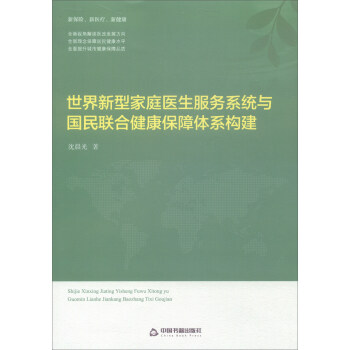
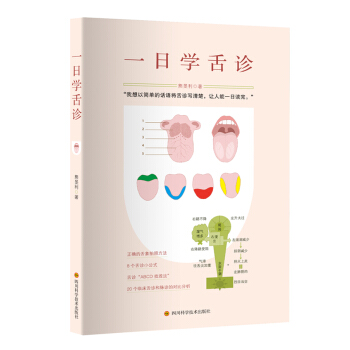
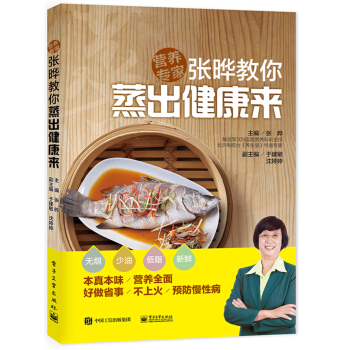
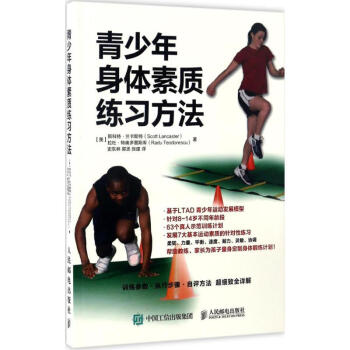
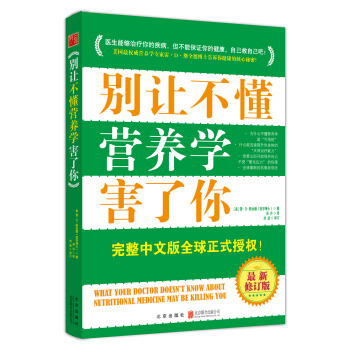

![器械健身完全指南(修訂版)(附DVD光盤1張) [Perfect Guide of Instrument Gym] pdf epub mobi 電子書 下載](https://pic.windowsfront.com/10639985/5732fde6N6d2b365f.jpg)
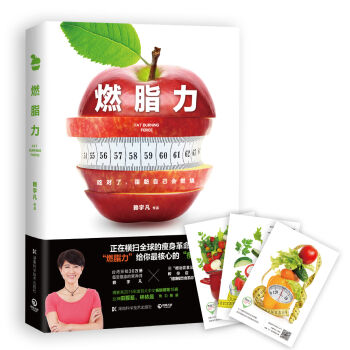
![輕療愈係列:輕療愈+輕療愈2+輕療愈3(套裝共3冊) [The Tapping Solution] pdf epub mobi 電子書 下載](https://pic.windowsfront.com/12070866/582e708cNaf11d097.jpg)
